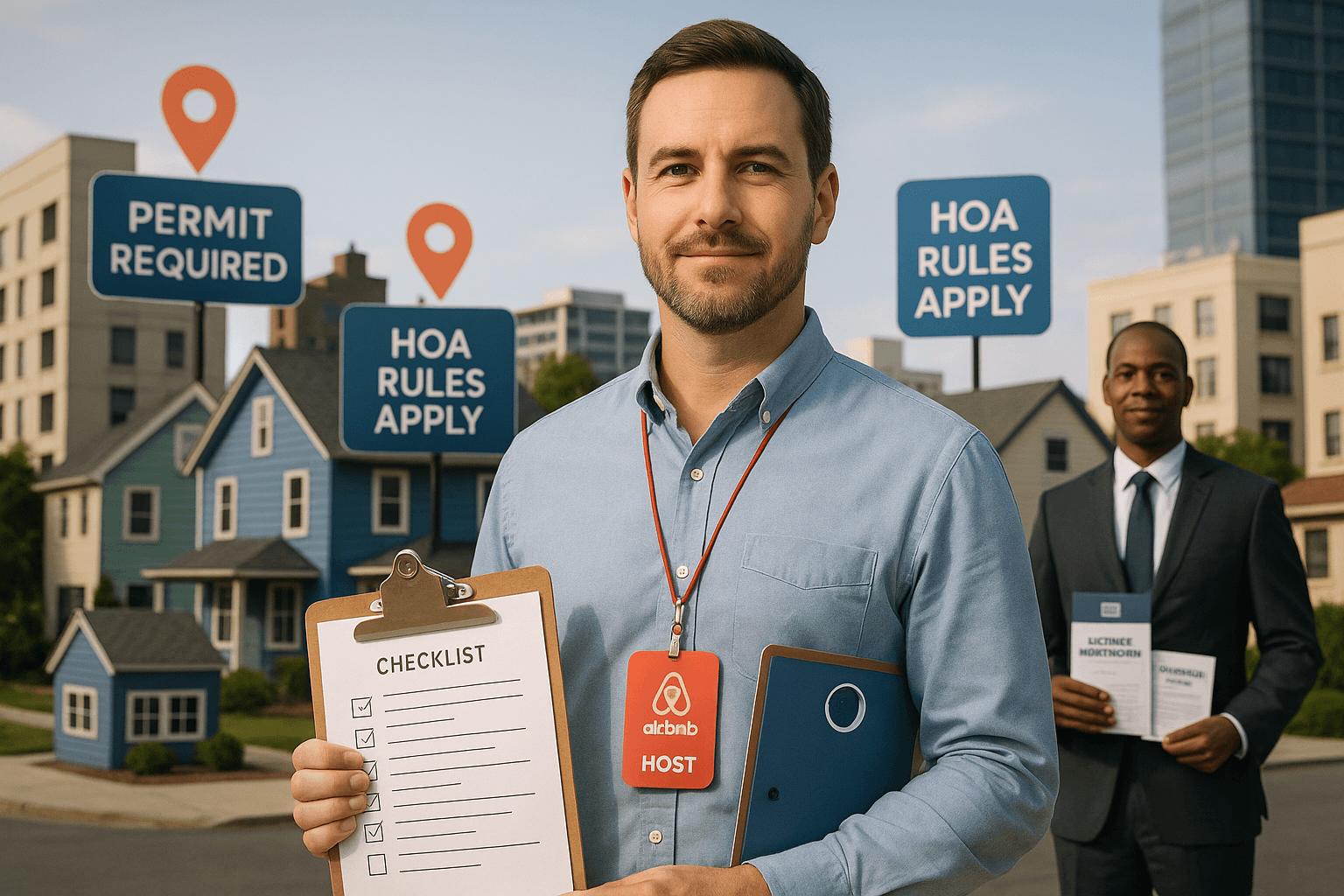
Short-Term Rental Laws 2025: What Airbnb Hosts Must Know
Because Ignoring the Rules Could Cost You More Than a BookingShort-term rental laws are changing faster than a guest can cancel outside your refund wi...
Table Of Contents
Share Article
Because Ignoring the Rules Could Cost You More Than a Booking
Short-term rental laws are changing faster than a guest can cancel outside your refund window. And in 2025, the pressure is on. Cities, counties, and even some neighborhoods are tightening regulations—and enforcement is getting smarter (and stricter).
If you're an Airbnb host, staying compliant isn’t optional. It's essential. Here's what you need to know for 2025, what trends to watch for, and how to protect your short-term rental business without losing your sanity.
1. STR Laws Are Becoming More Localized
State-level guidelines are still in play, but most of the big changes are happening at the city or county level. That means what's legal in one zip code might get you fined in the next one over.
Expect:
- New licensing or registration requirements
- Annual renewal fees and occupancy taxes
- Cap limits on the number of short-term rentals per area or building
What to do: Check your city and county government websites for updated ordinances. Don’t rely solely on Airbnb or forums—go straight to the source.
2. Expect Stricter Enforcement & Bigger Fines
In 2025, cities are partnering with third-party tech platforms that scan Airbnb and VRBO listings to track unregistered rentals. Translation? You probably won’t fly under the radar for long.
Common violations include:
- Hosting without a permit
- Exceeding guest occupancy limits
- Ignoring trash, noise, or parking rules
What to do: Display your permit number (if required) in your listing. Keep a copy of all correspondence with your city. Don’t wait until you get a warning letter.
3. Hosts May Need to Provide Guest Data
Some cities are now requiring platforms (and hosts) to share stay data for tax reporting or public safety purposes. This can include:
- Number of nights booked
- Guest names or contact info (in some rare cases)
- Proof of tax collection
What to do: Keep clean, organized records of all your stays, payouts, and guest communication.
4. HOA and Building Rules Still Apply
Even if your city allows short-term rentals, your building or homeowners association might not. In fact, HOAs are cracking down harder than ever.
What to do: Get written approval from your HOA or review your CC&Rs. Don't assume silence means approval.
5. Insurance & Liability Rules Are Getting Tighter
Some cities are now requiring proof of liability insurance for short-term rentals. Platforms like Airbnb offer basic coverage, but that may not be enough.
What to do: Make sure you have a short-term rental insurance policy that meets your city’s requirements. This isn’t just red tape—it protects you and your property.
6. What Trends to Watch in 2025
- Minimum-night stay laws: Cities may start requiring longer stays to limit party rentals
- Host caps per platform: You may be limited to managing a certain number of units
- Environmental and accessibility mandates: New builds or listings may need to meet sustainability or ADA guidelines
7. Compliance Doesn’t Have to Be a Headache
Yes, regulations are evolving. But being informed and proactive can actually give you an edge. Guests (and platforms) prefer hosts who play by the rules.
Keep your documents in order, stay in touch with local guidelines, and plan ahead—not just for bookings, but for compliance too.
Where SuperHost Depot Can Help
We know hosts don’t have time to decode city ordinances and track compliance updates every quarter. That’s why SuperHost Depot supports you with:
- Local STR compliance checklists
- Licensing reminders and renewal alerts
- Expert support for permit applications
- Access to insurance and tax resources tailored to STR operators
We’ve helped dozens of hosts navigate some of the toughest regulatory landscapes in LA County and surrounding regions. From strict permitting to occupancy restrictions and renewal headaches, our team has been in the trenches.
We’ve built real relationships with local inspectors, city offices, and HOA contacts, and we know exactly what it takes to stay compliant across multiple jurisdictions.
We help you stay legal—so you can stay booked.
Related Knowledge Base Articles:
- Compliance and Local STR Regulations
- Legal Considerations for SHD Hosts
- How SHD Supports Security and Compliance
- Understanding Airbnb Guest Policies
- Filing a Damage Claim with SHD
Subscribe to Our Newsletter
Get the latest hosting tips, industry insights, and exclusive offers delivered to your inbox.